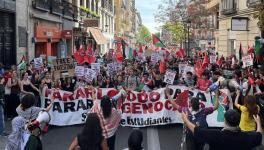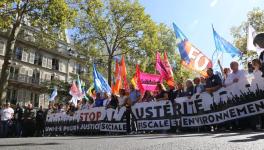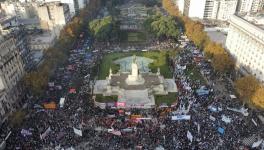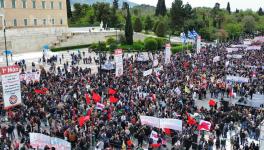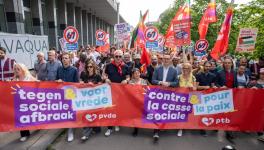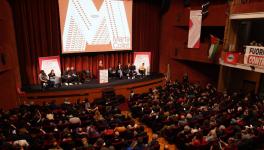19 Killed as Sudan Bread Price Protesters Meet With Violence From Security Forces
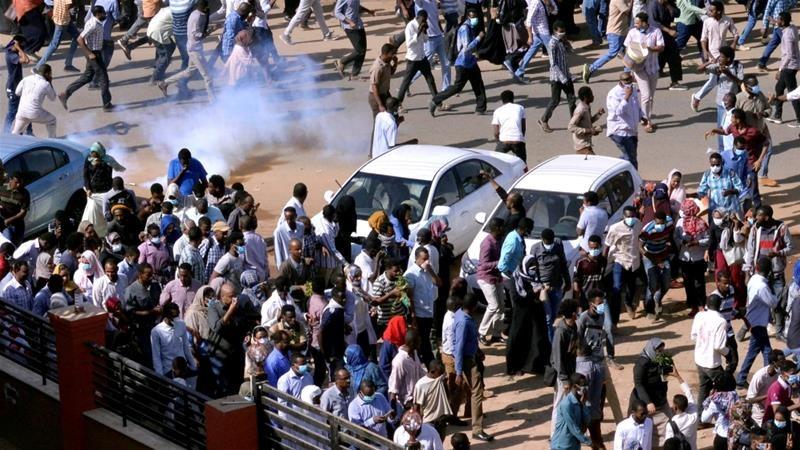
Thousands rallied in the capital Khartoum and other cities for the 10th day on Friday (Photo: Mohamed Nureldin Abdallah)
A violent confrontation between the protesters and the anti-riot police in the Sudanese capital city of Khartoum has resulted in the death of 19 people, according to the government. The demonstration was part of the ongoing protests against the rise in bread prices.
On Thursday, December 27, government spokesperson Boshara Juma said on state television, “Nineteen people have lost their lives in the incidents including two from security forces,” adding that another 219 persons have been wounded.
The protests began on December 19 in the city of Atbara and soon spread to other parts of the country after the government tripled the price of a loaf of bread from 1 Sudanese pound to 3 (0.02 USD to 0.06 USD). The demonstrators vowed to topple the incumbent government, led by President Omar al-Bashir who had assumed power after toppling a democratically elected government through a military coup in 1989.
According to the Sudanese authorities, eight people had been previously killed in clashes in Khartoum and several other cities since the protests began. However, human rights group Amnesty International reported that 37 protesters have been shot dead by the security forces in five days since the anti-government demonstrations began.
The Sudanese citizens have been rallying against the country’s dire economic situation, rising fuel prices and soaring inflation. The government has sought to deal with the depleting currency reserves by imposing withdrawal limits on bank accounts of ordinary citizens, who blame the government’s economic mismanagement and high-profile corruption for this financial crisis. Doctors and journalists have launched a strike in support of the protests and a coalition of trade unions has vowed to go on strike in the coming days in order to “paralyze the government”.
The protesters have met with violence at the hands of the armed forces, mass arrests, lack of access to information and accusations of being dissenters. In a bid to quell the protests, Bashir promised “real reforms to guarantee a decent life for citizens” but outlined no specific economic measures. The deep resentment against Bashir’s regime has been building up for decades among the masses, whose travails extend beyond the sphere of economy, and the discontent citizens are willing to settle for no less than his resignation.
Under Bashir’s rule, dissenters have been systematically subjected to imprisonment without trials and torture in custody. Bashir was accused of committing crimes against humanity for his role in the mass murder of civilians during the Darfur conflict.
Get the latest reports & analysis with people's perspective on Protests, movements & deep analytical videos, discussions of the current affairs in your Telegram app. Subscribe to NewsClick's Telegram channel & get Real-Time updates on stories, as they get published on our website.










